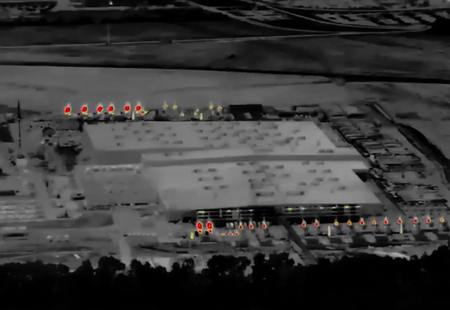Tesla CEO Elon Musk has created a perfect circle around what was once an abandoned factory on the outskirts of Memphis. There, he’s installed Colossus, the world’s most powerful supercomputer, to push AI to new limits and help define the future of Tesla’s cars. To complete this setup, the entire operation is powered by Tesla’s mega-batteries.
This project appears to be a win-win for Musk’s network, but it’s led to concerns from the neighbors.
A toxic colossus. According to CNN, in the summer of 2024, Musk transformed an old factory in Southwest Memphis into what he claimed was “the most powerful AI training system in the world.” Driven by Musk’s AI company xAI, the project promised to turn the city into a new tech hub. Dubbed the Digital Delta, it aims to bring quality jobs and millions in tax revenue.
Boxtown is a largely Black and impoverished community that has endured industrial pollution for decades. For its residents, the arrival of xAI feels like an unwanted déjà vu. They face a new source of pollution with unclear permits and what appears to be a disregard for public health.
A computer that consumes energy. To power Colossus, xAI installed 35 gas turbines capable of generating up to 420 megawatts. However, this process releases toxic gases such as nitrogen oxides, ultrafine particles, and formaldehyde. The issue arises from the fact that xAI did this without obtaining the required air permits, exploiting a legal exemption meant for temporary machinery. Experts argue it doesn’t apply to this situation.
The area already has 17 polluting facilities. Several studies indicate that the cancer risk there is four times higher than acceptable levels set by the EPA. Additionally, Memphis has the highest rates of childhood asthma hospitalizations in all of Tennessee.
Current situation. Memphis Mayor Paul Young praised the project’s potential to transform the area and anticipated increased technology investment. Meanwhile, local leaders like State Representative Justin Pearson have expressed concerns about being excluded from the decision-making process. This lack of transparency reflects a key regulatory failure. A facility with the power capacity of a power plant operates in a residential neighborhood without permits.
Additionally, recent thermal snapshots indicate that at least 33 of the turbines were operational in April. In light of the controversy, xAI eventually applied for permits for 15 of the turbines and removed 12. However, according to CNN, the damage to public trust has already occurred.

Promises. Project proponents claim that they’ll meet “industry-leading emissions standards.” Still, residents see a troubling pattern. Promises of high-paying jobs often fail to materialize because data centers employ very few people. In contrast, the environmental burden typically falls on those with the fewest resources to defend themselves.
Moreover, the story of Boxtown isn’t new. In 2021, residents successfully halted an oil pipeline that would have crossed their land. In 2023, they shut down a sterilization plant that emitted ethylene oxide. For them, xAI represents just the latest chapter in a long struggle for the right to breathe.
Innovation or regression. xAI’s installation reflects a broader national issue regarding the rise of AI and its true costs. Amid the enthusiasm for establishing the U.S. as the “AI capital of the world,” the expansion of energy-hungry data centers continues without a serious assessment of their environmental implications, particularly for vulnerable communities.
The Trump administration’s unwavering support for Musk, one of the president’s closest advisors, coincides with the weakening of environmental policies. The government has eliminated green justice programs and overall prioritizes economic efficiency over environmental protection.
Just the beginning. The contradiction is clear. AI is hailed as the future, but it relies on fossil technologies from the past. Additionally, it generates private profits while distributing the risks and harms to the public. “If the innovation shackles you to fossil fuels like methane gas or coal, that’s regression, right? That’s not progress,” KeShaun Pearson, director of Memphis Community Against Pollution, warns.
As a result, residents fear that what’s happening in Memphis is merely a rehearsal for similar scenarios that could soon unfold in neighborhoods across the country.
A tireless struggle. NBC reports that in Boxtown, indignation coexists with fatigue. Many residents feel as though they’re engaged in a never-ending battle. The prospect of a second xAI mega-facility, already planned for the city, only deepens their sense of siege. “It seems like we are always at battle,” Sarah Gladney, who lives just a few miles from the facility and suffers from a respiratory condition, told CNN.
This situation presents a paradox. While local officials speak of economic transformation, the neighbors focus on mere survival. In the background, the promises of advanced technology clash with the enduring reality of systemic pollution. Who truly benefits from this progress?
Images | Andrew Dawes | Southwings for the Southern Environmental Law Center
Related | Nvidia’s Project Digits is the Start of Something Big: A Desktop Supercomputer for AI Systems



